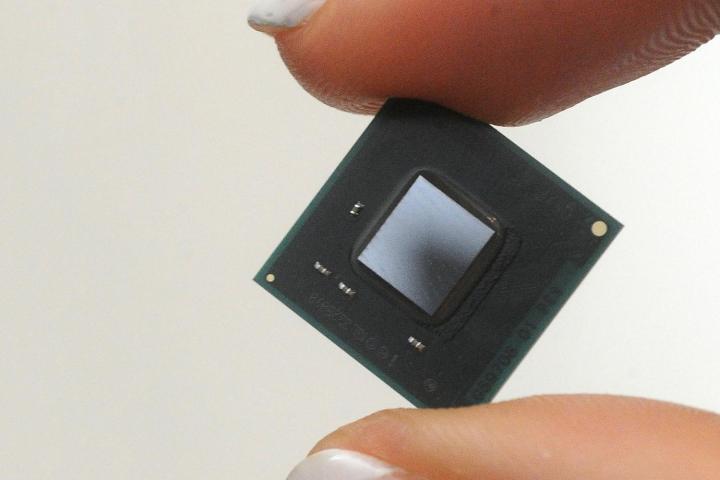
In May of 2013, the company acquired Mashery to help make Intel run inside everything IoT, meaning devices such as coffee makers and thermostats with sensors and an Internet connection work together to facilitate everyday activities.
“It was right around the same time that we were getting bought that a bunch of people at Intel thought hey, we make chips. Everything runs on Intel. More things are going to run on Intel. And everything that runs on it is going to have to connect,” Mashery founder Oren Michels told Digital Trends in October.
The Quark X1000 SoC, its smallest core ever, was designed for wearables but Intel wants to do more than just make the chips inside these connected devices. It designed the platform to help other companies test and launch secure smart devices. Doug Davis, VP of Intel’s Internet of Things Group, says the platform makes it easier to develop and deploy new solutions. It also facilitates interoperability, and, Intel stresses, makes devices more secure. (The word “security” appears more than 10 times in the IoT press release, so you know the company means business.)
Intel has a variety of partners, including Accenture, Booz Allen Hamilton, Dell, SAP, Tata Consultancy, and Wipro, who have signed on to help different industries innovate in terms of the IoT. While Booz Allen will bring its healthcare, transportation, and energy expertise to the platform, the partnership with Wipro will focus on smart home techinology, such HVAC, lighting, and energy management.
One of Intel’s main competition in the IoT space is Qualcomm. The chip company started AllJoyn, an open-source language that allows compatible devices communicate. Supported by the AllSeen Alliance, whose members include LG, Electrolux, Haier, Sharp, and Sony, AllJoyn isn’t yet the universal language for all smart things. While Intel was sluggish hopping into the mobile market, it’s joining the IoT arena before a champion has been declared. Recently, it formed the Open Interconnect Consortium, which wants to define a standard framework for new smart technology, “regardless of form factor, operating system, or service provider.”
Whether Intel’s platform will become powerful enough to turn AllJoyn’s universal language into something akin to Esperanto remains to be seen.


